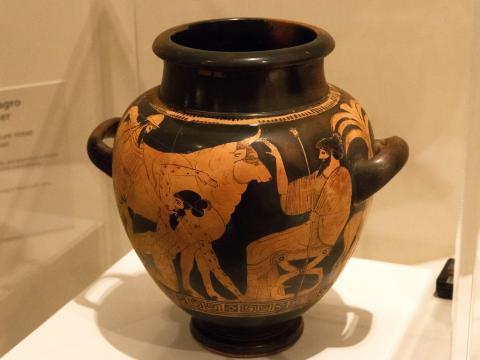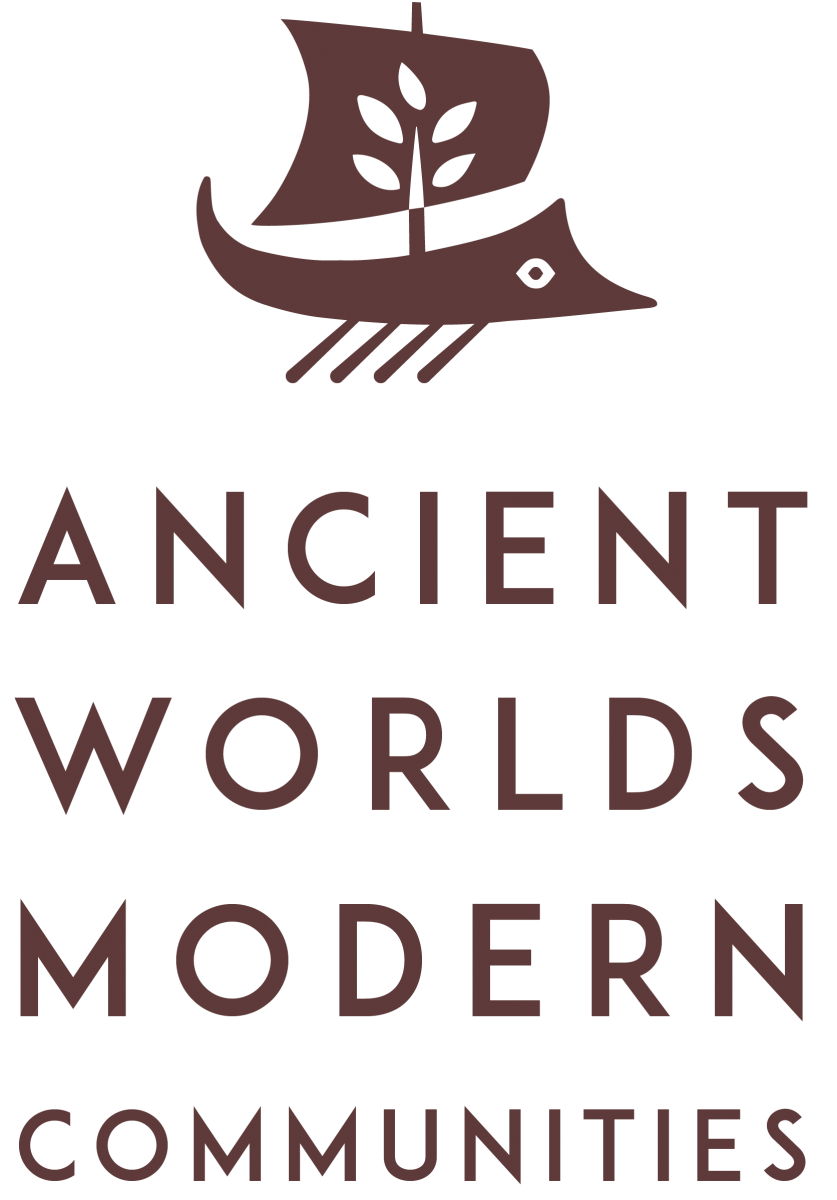Nina Papathanasopoulou
September 16, 2021
The Ancient Worlds, Modern Communities initiative (AnWoMoCo), launched by the SCS in 2019 as the Classics Everywhere initiative, supports projects that seek to engage broader publics — individuals, groups, and communities — in critical discussion of and creative expression related to the ancient Mediterranean, the global reception of Greek and Roman culture, and the history of teaching and scholarship in the field of classical studies. As part of this initiative, the SCS has funded 111 projects, ranging from school programming to reading groups, prison programs, public talks and conferences, digital projects, and collaborations with artists in theater, opera, music, dance, and the visual arts. The initiative welcomes applications from all over the world. To date, it has funded projects in 25 states and 11 countries, including Canada, UK, Italy, Greece, Spain, Belgium, Ghana, Puerto Rico, Argentina, and India.
This post centers on two projects that employ Greek and Roman literature in innovative ways to deal with contemporary issues. The first project draws inspiration from Euripides’ Trojan Women to facilitate the expression and sharing of intense experiences between students in the University of California and female prisoners, while the second project adapts Ovid’s Metamorphoses in a one-woman show that explores the role of women in our post #MeToo era.
The Trojan Women Project
Actor and art-activist Michael Morgan received funding from AnWoMoCo for his “Trojan Women Project,” a virtual summer course envisioned in 2020 during the COVID-19 pandemic. The course brings together undergraduate students from the University of California at Santa Barbara (UCSB) with incarcerated female students from the Ventura Youth Correctional Facility (VYCF) in Camarillo, CA, to re-write Euripides’ Trojan Women using digital storytelling. The students collaborate to interpret the play as artist-activists, culminating with the creation of a video that re-tells the ancient tragedy as a story of recovery after the destruction of Troy. The program has now run twice, both times online, but Morgan intends to realize it as live theater when the pandemic permits.
Morgan, who is dedicated to amplifying the voices of oppressed and marginalized communities, first studied Greek drama while training as an actor at New York University’s Tisch School of the Arts. He found the Greek tragedies compelling not only for their heightened language and dramatic power, but also for their ongoing relevance and timelessness. Euripides’ Trojan Women, for example, spoke to Morgan because it deals directly with issues of oppression and slavery and presents an unrelenting series of catastrophes, without any redemption or justice at the conclusion of the play to balance the staggering losses. By studying such a play, he thought, individuals undergoing personal, social, and political victimization might find a vehicle of expression and liberation. Noting that the majority of university-prison arts alliances are established in collaboration with prisoners who are men, Morgan wanted to establish a collaborative arts space between the academy and women prisoners, for which Trojan Women — with its nearly exclusive focus on the plight of victimized women — would provide an excellent basis.
Morgan discusses his project and goals in more details:
The project deconstructs Euripides’ Trojan Women in terms of the participants’ modernity. We look at war wounds not as permanent sites of condemnation and stigma, but as sources of reimagining and healing. Using digital storytelling, students leverage the tragic heroines’ stories as catalysts for making changes and strategizing, through art, ways of building new visions of productive outcomes from the ashes of Troy. The female incarcerated students are writing new scripts to serve as centerpieces for discourse that re-examine the criminalization of female youth caught up in the cradle-to-prison pipeline.
The 2021 course included guest talks by formerly incarcerated individuals who have dedicated themselves to education and social justice activism: Michelle Jones, currently a doctoral student in the American Studies program at New York University and a chairwoman of the board of Constructing Our Future; Nafeesah Goldsmith, who pursued a Master’s degree at Monmouth University and works as a community organizer with New Jersey Together; and Adamu Chan, a filmmaker, artist, and activist who works with the San Quentin State Prison project, Firstwatch, to support formerly incarcerated artists.
All participants in the “Trojan Women Project” begin by selecting one of Euripides’ characters. They then use this character as a starting point to write about their own experiences, how they have been stigmatized and oppressed, and how they have managed those oppressions. They compile their stories into a video, which, to honor the privacy of the incarcerated youth, is only available to a limited audience.
In creating this project, Morgan is primarily interested in acknowledging the participants’ humanity and building a community to act as a safe social space to examine and share personal stories through words, music, drawing, imagery, and film. Morgan found that participants in the summers of 2020 and 2021 used the opportunity to interpret their experiences as a way of gaining a sense of ownership and even pride. One of the incarcerated women who participated in the course said:
Being in the Trojan Women course has allowed me to embrace my unique journey while being able to say some of my most painful memories without bursting into tears, and for that, I thank you. This may seem like no big deal to most individuals, yet this was a huge step forward in acknowledging and accepting that everyone has a story to tell, and this is my story. I am their HECTOR, and I plan to use this rage and fire that has been built up inside of me to help other at-promise youth see the light the way I have in education (rather than trying to survive in the underground world of drugs, crimes, violence, etc.).
Participating in the Trojan Women Project was eye-opening and liberating for the UCSB students as well:
Working with the radiant women from Ventura is something I will never forget and an opportunity I am so appreciative for. Coming from a place of privilege, I have only recently learned about the injustices of the prison-industrial complex in this country, and I have been working to educate myself on the current abolition movement. Being able to build relationships with people who are currently directly affected by those systems contextualizes the issues in a new light to me, only further proving to me that those who are currently incarcerated are good people that deserve another chance. Their stories were so moving and powerful.
Ovid and #MeToo
Drawn to the visceral nature and contemporary feel of Ovid’s Metamorphoses, New York-based actress Sarah Baskin shares Morgan’s interest in using ancient texts to explore and comment on contemporary issues. From her first encounter with Graeco-Roman texts as a graduate acting student at the American Repertory Theater at Harvard, Baskin was drawn to their representations of the supernatural, which she saw as a kind of magical realism.
In collaboration with Cheri Magid, playwright and Assistant Arts Professor in Dramatic Writing at New York University, Baskin worked on creating “A Poem and a Mistake,” a play/film wrestling with how to make sense of Ovid's Metamorphoses in a post-#MeToo era. Realizing that many people reading Metamorphoses or looking at art inspired by it were desensitized to or unaware of the representations of rape and sexual assault within the text, Baskin and Magid wanted to offer a contemporary look at the piece where audiences would be challenged to engage with these topics. Acting in the one-person show has Baskin moving fluidly between predator and prey, god and mortal, teacher and student. “The piece is unexpectedly visceral and playful,” Baskin explains. “It is a relatable story that is engaging and, we believe, will spark people’s interest to go back to the text and to artworks inspired by it and look at them differently.”
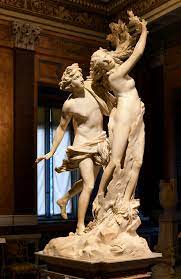
Figure 1. Bernini’s beautiful, yet unsettling, sculpture of Daphne and Apollo, one of the many works of art Baskin’s and Magid’s work is responding to.
“A Poem and a Mistake” centers on journeys of transformation and the landscape of memory. It draws on Ovid’s tales of Apollo and Daphne, Pan and Syrinx, Jove and Io, and Juno and Callisto to narrate the experiences of a woman graduate student and her professor. Baskin explains the concept and story of their film/play like this:
“A Poem and a Mistake” follows the story of Myrrha, a grad student in the Classics who is grappling with how to handle the fifty sexual assaults in Ovid’s Metamorphoses. When one of her male professors refers to the poem as “being about love,” Myrrha becomes so distraught that she inadvertently pushes him and, suddenly, like the characters in Metamorphoses itself, the professor is transformed into a young woman who looks exactly like Myrrha. Both characters, Myrrha and Not-Myrrha, find themselves in an Ovid-like landscape, where transformation is a magical and terrifying confrontation with their own gender, sexuality, and relationship to desire.
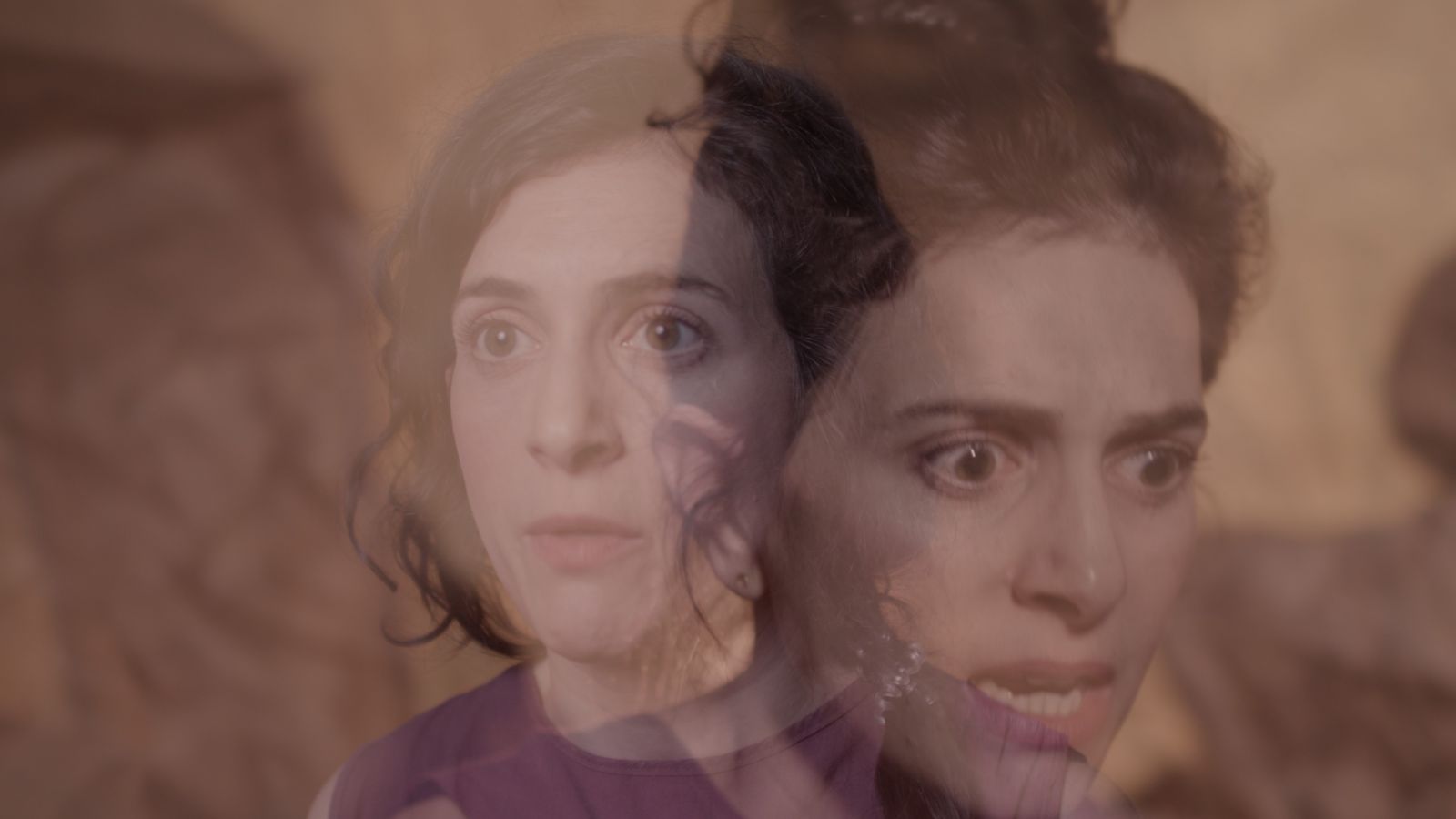
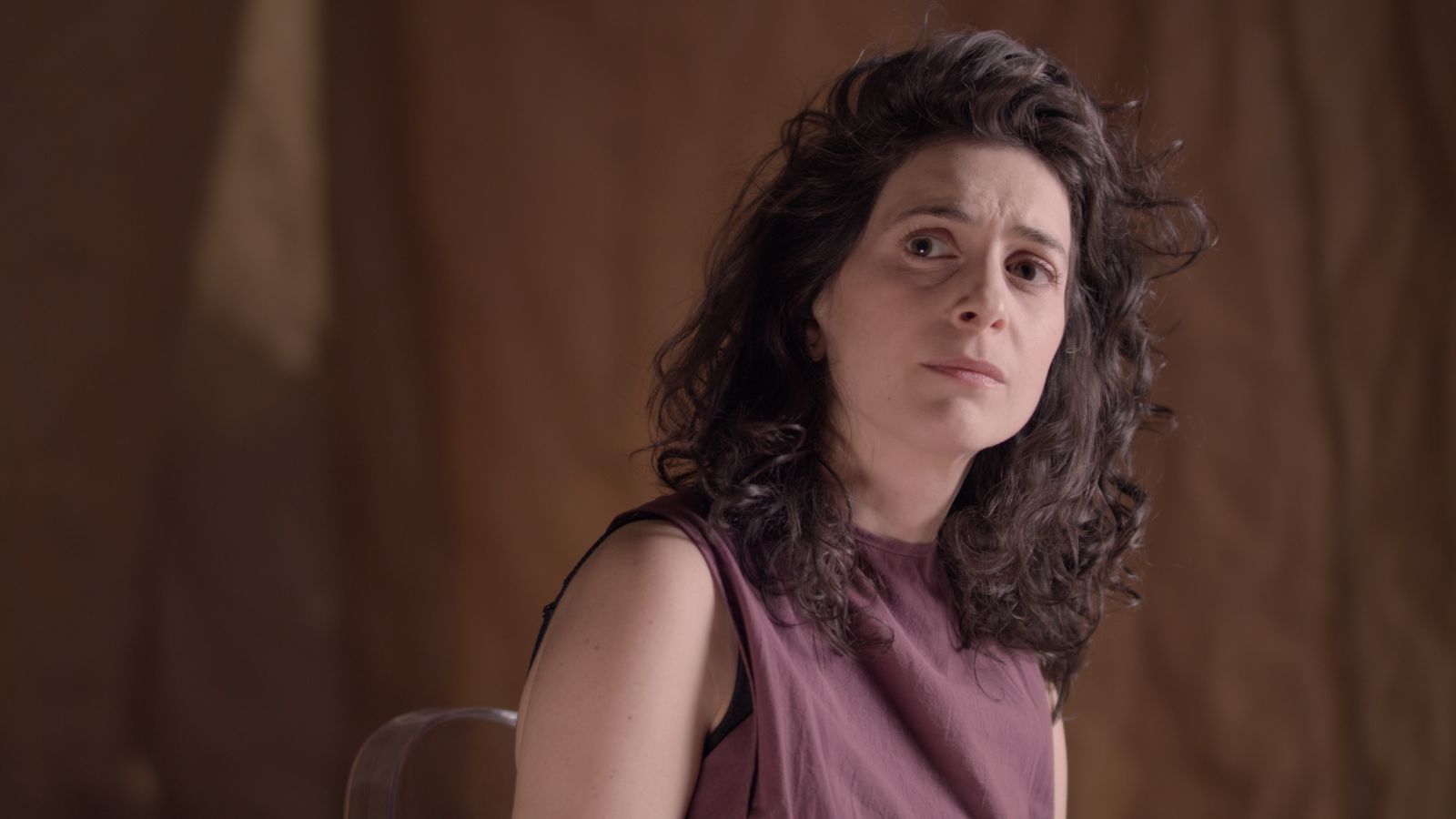
Figures 2 and 3. Sarah Baskin as Myrrha/Not-Myrrha in “A Poem and a Mistake,” written by Cheri Magid. Photos by Drew Pennella.
Rehearsals and filming of “A Poem and a Mistake” took place at the end of July, through Shout Out Saugerties in Saugerties, NY. The entire virtual film/play is available at the Australian Center for Contemporary Art (ACCA) in Melbourne as part of their show, A Biography of Daphne, which also includes a podcast conversation with Magid and classicist Stephanie McCarter. On September 14, there was a viewing party hosted by Alexis Grenell of The Nation in association with NYU and ACCA, followed by a talkback. The play/film will also have an in-person screening in the Hudson Valley this fall (dates TBA), when it will be simultaneously streamed on the Shout Out Saugerties website.
Working on “A Poem and a Mistake” allowed Baskin to look at the past through the lens of the present:
What speaks to me in particular about the piece is the way in which we all search for ourselves, consciously or unconsciously, inside the art and literature we engage with. Therefore, there is an inherent responsibility to acknowledge the violence against women when reading a Classical text in which there is violence against women. Women will look for themselves in the writing, and when they find themselves, it ought to be acknowledged both in the translation and teaching of the text.
Magid shares her thoughts on the creative process:
I have always loved Ovid and Metamorphoses. As a writer, I’m particularly drawn to Ovid’s Russian doll approach — stories within stories within stories — and the way he varies tone, careening unexpectedly from the tragic to slapstick, from the fantastic to the ordinary. We wanted “A Poem and a Mistake” to play with all of those dynamic storytelling elements. And, most importantly, we wanted to find ways for Sarah to embody metamorphoses and change, with all of its violence and all of its beauty.
Violence and beauty figure powerfully in the literatures of Greece and Rome. As these projects demonstrate, it is not the accidental features but the central concerns of the ancient texts — the suffering of victimized women in Euripides, or Ovid’s motif of transformation at moments of greatest stress — that can facilitate the work of people wrestling with some of the most challenging issues of our day. With these new ideas, new voices, and new participants, we can sense that the field of Classical Studies itself is reaching for a new form and shape.
Authors
